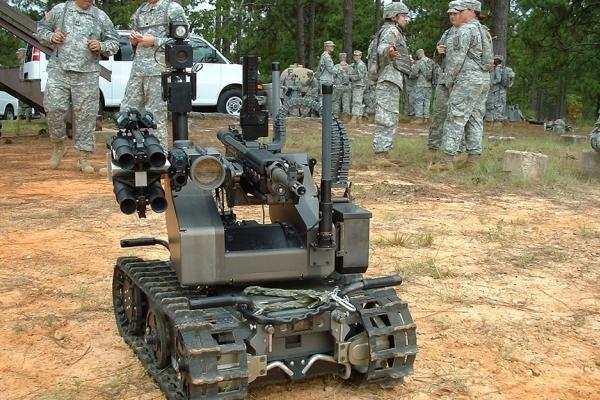Pentagon plans envisioning smart, autonomous weapons able to instantly react and respond to combat situations may run up against a proposed United Nations ban on lethal autonomous weapons systems.
The UN is hoping to head off autonomous killing systems before countries begin making them part of their arsenals, though the US, Russia and others appear to be in no hurry to slow the advance of killer robots.
Just last week Deputy Defense Secretary Bob Work told a national defense forum in Washington, D.C., that a strong deterrence strategy in the future will depend partly on having weapons systems that "learn" in real-time and operate autonomously.
Automated battle networks boosted by advances in computing power and network attacks already has combat operations moving at cyber speed, Work said.
"This trend is only going to continue as advanced militaries experiment with these technologies, as well as others like hypersonics," he said. "In the not-too-distant future, we'll see directed energy weapons on the battlefield which operate at the speed of light."
But the UN is hoping to head off autonomous killing systems before countries begin making them part of their arsenals.
Christof Heyns, UN special rapporteur on extrajudicial, summary or arbitrary executions, told the British newspaper The Guardian in October that research and development is well underway.
"A lot of money is going into development and people will want a return on their investment," Heyns told the paper. "If there is not a preemptive ban on the high-level autonomous weapons then once the genie is out of the bottle it will be extremely difficult to get it back in."
When UN delegates met in Geneva in April to discuss a proposed LAWS convention, the head of the American delegation said the US believes that "a robust policy process and methodology can help mitigate risk when developing new weapon systems."
The Pentagon has established a directive for how the US would consider plans for developing such systems, Michael Meier told the group.
"We would like to make clear that the Directive does not establish a US position on the potential future development of [LAWS] -- it neither encourages nor prohibits the development of such future systems."
During a meeting on LAWS in October, the US called it premature to consider a ban on LAWS and reiterated that it neither encourages nor prohibits the development of such weapons, according to Campaign to Stop Killer Robots, a group made up of nine human rights and peace organizations.
Russia sounded much like the US, according to the group, which quoted that delegation as saying banning such systems is premature since, "for the time being we deal with virtual technology that does not have any operating models
Work, in his presentation in Washington last week, quoted Gen. Valery Gerasimov, chief of Russia's General Staff, as saying Russia is preparing to fight on a roboticized battlefield.
"And [Gerasimov] said -- and I quote -- 'In the near future, it is possible that a fully roboticized unit will be created, capable of independently conducting military operations'," Work said.
--Bryant Jordan can be reached at bryant.jordan@military.com. Follow him on Twitter at @bryantjordan.





























